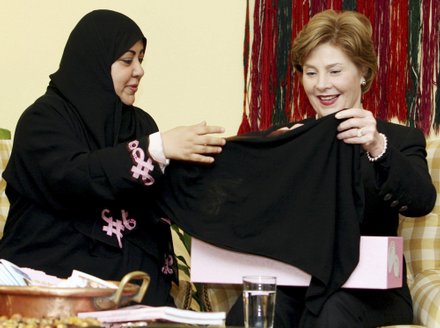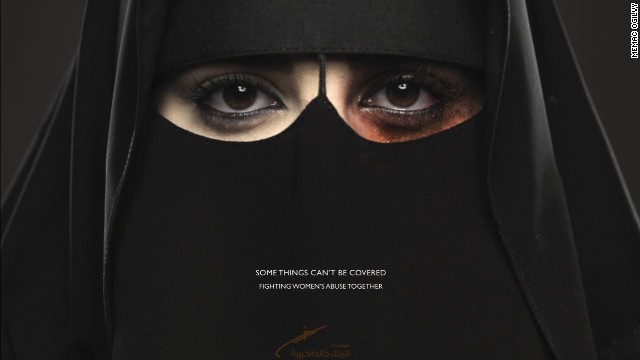According to the latest report by UNESCO, the percentage of women graduating from university in Saudi Arabia is higher than in countries in the West. In the field of science, 40 percent of Saudi doctors are women and there is an increasing number of successful women who have acquired global recognition as scientists and researchers and have inspired many Saudi women at home.
Dr. Khawla Al-Kurai, consultant and principle clinical scientist and cancer researcher at King Faisal Specialist Hospital and Research Center (KFSHRC), is a distinguished doctor who has made contributions in the field of medical research. She is on the board of editors of BMC Genomic, a well-known journal in genetics. Dr. Al-Kurai is in charge of a project attempting to
 | |
|
Professor Samira Islam , the head of the Drug Monitoring Unit at King Fahd Research Center has made significant contributions in drug safety by defining the Saudi profile for drug metabolism. She has
 |
| Prof. Samira Islam with German Chancellor Angela Merkel |
Dr. Samia Al-Amoudi, obstetrician, gynecologist and assistant professor at King Abdul Aziz University, is a breast cancer advocate and breast cancer survivor. She has received several awards for her courage
 |
| Dr. Samia Al-Amoudi with Former U.S. First Lady Laura Bush |
Dr. Maha Al-Muneef, Executive Director of the National Family Safety Program and councilor of the International Society for the Prevention of Child Abuse and Neglect, is a child protectionist and child rights advocate. She is also a consultant on pediatric infectious diseases and has been involved in the national implementation of child protection services.
She is chairwoman of the Suspected Child Abuse and Neglect Center at King Abdul Aziz Medical City, a fellow of the American Academy of Pediatrics, and president-elect of the Arab Professional Network
for the Prevention of Violence Against Children. She is also a consultant in the Shoura Council.
Dr. Al-Muneef has dedicated her career to the prevention of child abuse and to raising public awareness about the need to address this social problem and to train doctors to recognize the victims of abuse. She has also called for legal action against child molesters.
Dr. Al-Muneef started the national safety program in 1999 with her colleagues to address the abuse of women and children by husbands and fathers and was supported by the patronage of Princess Adila the daughter of King Abdullah. Dr. Al-Muneef has worked hard to educate women about their legal rights and she has offered legal and social assistance to victims unable to escape from abusive homes. She has also been instrumental in establishing centers to protect victims of abuse. She has campaigned in many parts of the Kingdom to raise awareness and has succeeded in organizing three significant symposiums in Jeddah, Madinah and Abha that were instrumental in enacting the country’s first laws criminalizing violence against women and children.
In order to address the biased attitude which is sometimes found within the judiciary, Dr. Al-Muneef has engaged judges, lawyers, police officers and activists to protect the rights of women and children and expose the unjust and un-Islamic criminal acts of abusive husbands and fathers.
These Saudi women who have reached leadership positions and many others are role models for future generations. The success of these distinguished women has undoubtedly boosted the morale of those members of society who were once abused and marginalized. Women doctors, scientists and researchers are expected to contribute toward a socially, politically and economically progressive Saudi Arabia.
Originally published on Saudi Gazette by Samar Fatany.





